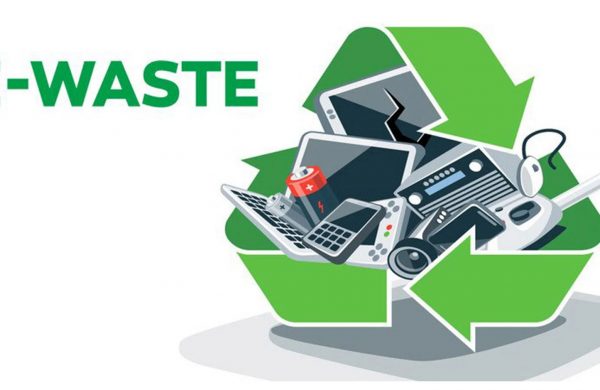E-waste Management may pave the way for sustainable future
- Update Time : Thursday, January 25, 2024

A H M Masum Billah
In the rapidly evolving landscape of technological innovation, there is an alarming 30% annual increase in electronic waste (e-waste), posing a substantial threat to both the environment and human health. This rapid increase highlights the crucial need of efficient e-waste management.
The detrimental impact of e-waste on soil, air and water is concerning with toxic chemicals released from discarded devices permeating our surroundings. In light of this situation, it becomes imperative to raise awareness about the significance of recycling and proper disposal of e-waste to tackle the imminent environmental challenges.
The boom in technology usage has resulted in a large growth in electronic gadgets, as well as an increase in e-waste. Unfortunately, inadequate recycling management has resulted in the irresponsible disposal of electronic waste, exacerbating environmental issues.
The rapid advancement of technology, continual upgrades, multifunctionality, increasing storage capacity and appealing designs— all contribute to the growing generation of e-waste, making old gadgets outdated at an unprecedented rate. The older devices often lack the durability for extended use, and the cost of repairing them is frequently economically unviable. Compounding this issue, aggressive marketing strategies employed by multinational companies play a pivotal role in the accelerated turnover of electronic devices.
The e-waste generated in 2019 globally had a raw material value of approximately USD 57 billion, of which only USD 10 billion was recovered through environmentally accepted methods. The United Nations Environment Programme and the United Nations University suggest that if e-waste is properly recycled, four million tons of precious metals can be recovered annually. This not only represents a significant economic opportunity but also underscores the importance of responsible e-waste management in harnessing these valuable resources.
The disposal of e-waste carries both economic and environmental consequences. The monetary value of metals used in electrical and electronic products is estimated at $45.4 billion. Despite the potential economic benefits, only small portion of the 3 million tons of e-waste generated in Bangladesh in 2022 undergoes proper recycling, while the rest is dumped, incinerated or inefficiently processed.
The improper management of e-waste poses significant health risks as well, particularly for vulnerable groups such as women and children. Initiatives for proper e-waste management are crucial to safeguard these vulnerable populations from the harmful effects of electronic waste.
The urgent need for appropriate e-waste management is essential to mitigate health risks and protect the well-being of the population.
Recognising the gravity of the situation, the government has enacted policies to address the risks associated with e-waste, marking a significant step forward with the Hazardous Waste (E-Waste) Management Rules, 2021.
However, the effective implementation of these regulations is crucial to ensuring proper disposal and recycling practices. Strict enforcement of laws, coupled with responsible behaviour from device manufacturers and users, is pivotal to resolving the e-waste problem.
Government agencies must actively monitor and ensure compliance with regulations, holding accountable those who contribute to the improper disposal of electronic waste. The effectiveness of these policies relies on robust enforcement and continuous monitoring to ensure compliance from all stakeholders involved in the life cycle of electronic devices.
Despite the challenges posed by e-waste, there is a silver lining – the potential for employment generation and entrepreneurship in the e-waste management industry. As awareness grows and demands for proper disposal and recycling services increases, the potential for economic development in this sector expands. The government, businesses, and educational institutions can collaborate to provide training and support for individuals entering the e-waste management field.
Environmentalists and experts emphasise the potential of e-waste in fostering a circular economy in Bangladesh. By efficiently managing and recycling e-waste, the country can recover valuable resources, reduce environmental impact, and contribute to sustainable economic development. E-waste management, if given the necessary support and patronage from the government, producers, and business organisations, could emerge as a pivotal sector in the nation’s economy.
E-waste management has the potential to become a significant player in Bangladesh’s economy. With the right government patronage, collaboration from e-waste producers, and engagement of business organisations, this sector can contribute substantially to economic growth.
The circular economy model, emphasising resource recovery and sustainable practices, aligns with global trends and positions Bangladesh as a responsible and forward-thinking player in the international arena. The road ahead involves fostering a culture of responsible e-waste management, ensuring compliance with regulations, and realising the potential for a circular economy that benefits both the environment and the economy. By addressing the e-waste challenge head-on, Bangladesh can pave the way for a sustainable and prosperous future.
The writer is the PRO, Ministry of Foreign Affairs
(Source: The Daily Sun)



















